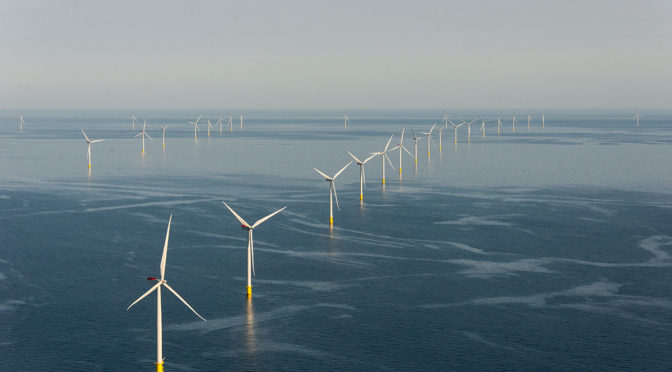The collaborative, multidisciplinary three-year-long projects will use environmental science, technology and engineering to tackle key challenges affecting the development of ORE systems, such as offshore wind, wave and tide facilities, and maximise their environmental and socio-economic benefits. The projects will determine where the best energy resource is available and where would be best to implement ORE technologies, and inform the development of technology so that structures are resilient to extreme events such as typhoons and earthquakes.
The latest data published by the government in 2017 showed that a record 47 per cent of the UK’s electricity was generated by clean energy sources in 2016. Overall, renewable sources – which include onshore and offshore wind, solar farms, hydroelectric dams and biomass – accounted for 25 per cent of the UK’s electricity generation.
In addition, the projects will:
- showcase the potential of ORE technologies to provide stable power supply for island and coastal communities, particularly in China, but also in UK offshore island communities
- improve understanding of resources for ORE systems under different conditions between UK and China, all of which will move both countries closer towards a low carbon economy
- help to understand and reduce the risk of extreme events and encourage sustainable development of ORE systems, which could kick-start floating design methods and assess suitability of current standards and methods
- help to reduce the uncertainty in resource and the potential power produced, while identifying and informing ORE system build sites. This research could underpin other aspects of ORE development, both engineering and policy
The Engineering and Physical Sciences Research Council (EPSRC) and the Natural Environment Research Council (NERC) are supporting the projects with almost £4 million of funding, which will be distributed from the Newton Fund. The National Natural Science Foundation of China (NSFC) is providing support for all of the projects. The projects have been funded as part of the Joint UK-China Offshore Renewable Energy programme.
Richard Harrington, Minister for Energy and Industry, said: “The UK is a world leader in offshore wind which helps us meet our climate commitments while we grow the economy and create jobs.
“This £4 million investment will support collaborative research into the next generation of offshore technologies with one of our largest global trading partners, unlocking further opportunities for projects across the UK and the rest of the world.”
EPSRC’s Chief Executive, Professor Philip Nelson, said: “The Joint UK-China Offshore Renewable Energy programme will build on a successful history of international collaboration between EPSRC and NERC in the UK, and the NSFC in China, across a range of topics.
“This multidisciplinary programme has already delivered invaluable research on reducing energy demand at the city scale, the integration of electric vehicles and grid scale energy storage. These new projects bring together some of the leading minds in this field from the UK and China to increase our capacity to generate and distribute affordable, safe, clean energy.”
NERC’s Chief Executive, Professor Duncan Wingham, said: “This research will develop the potential of offshore renewable energy technologies, integrating environmental science to provide a better understanding of the energy resources, the sustainable development of ORE systems and where best to locate and deploy these systems to ensure a stable power supply with minimal environmental impact.”
NSFC President, Yang Wei, said: “Further advancing China’s already world-leading renewable energy sector is an integral part of the country’s 13th Five-Year Plan and will help drive future economic growth and advance the cause of low-carbon development. As always, partnership with the UK in this field helps build upon both sides’ complementary strengths in research and innovation and will definitely further strengthen our already productive bilateral relationship in the long run.”
NSFC’s Deputy-Director General of the Department of Engineering and Material Science, Professor Che Chengwei, said: “In the long run, it is vital to develop high-efficiency clean energy for a sustainable society. We are delighted to see the ongoing development of UK-China research collaborations, and believe these newly-funded projects lead to positive outcomes that will further strengthen bilateral cooperation.”
The projects will ultimately promote economic development in China by bringing down the cost of energy, understanding the environmental processes that can lead to climate change as well as addressing the population welfare issues associated with reliance on fossil fuels.
For more information, please visit: https://www.epsrc.ac.uk/

